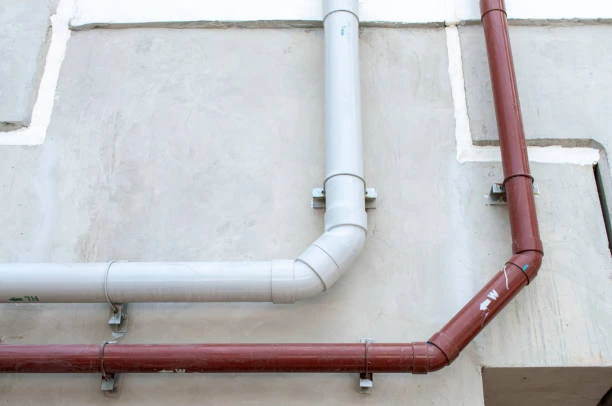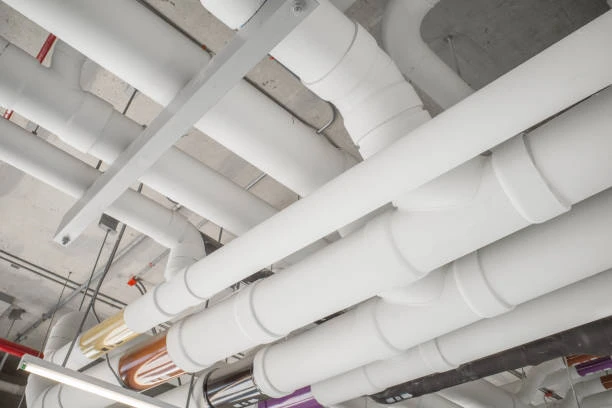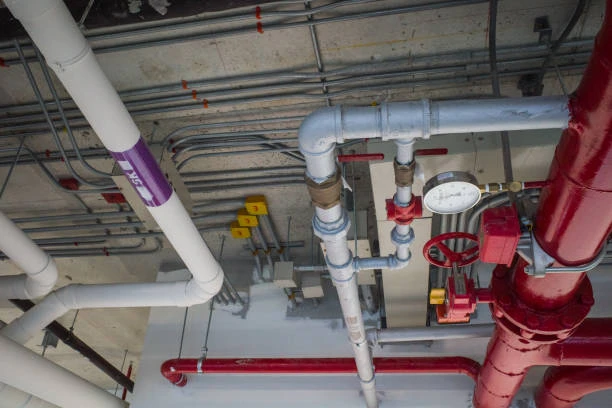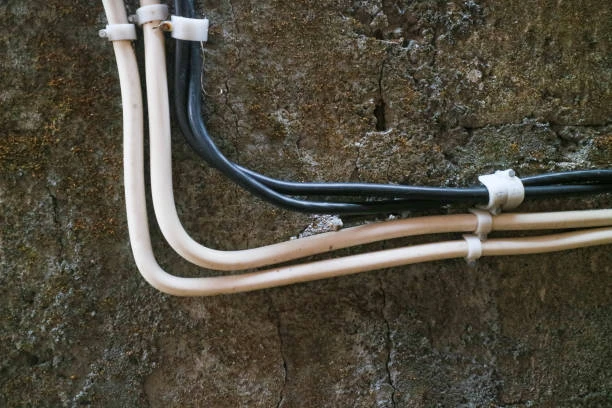Introduction: Minimising Fluid Resistance for Enhanced Efficiency
In plumbing and heating systems, flow resistance can significantly affect energy consumption, pressure levels, and overall system performance. Selecting components with low internal resistance improves system efficiency, reduces wear, and lowers operational costs. Copper ball valves have gained popularity for their low-loss internal design, particularly when compared to traditional or plastic-based solutions like the pex al valve.
This article explores how copper ball valves minimise fluid resistance, their working principles, use cases, and what to consider when purchasing and installing them. We will also compare them with other valve materials, helping users make well-informed decisions.
Frequently Asked Questions (FAQ)
1. What does “low-loss” mean in valve design?
“Low-loss” refers to minimal pressure drop across a valve during fluid flow. A well-designed valve allows fluids to pass through smoothly without causing turbulence or resistance.
2. How do copper ball valves reduce fluid resistance?
Copper ball valves use a spherical internal structure with a full bore opening, allowing fluids to flow with minimal disruption and pressure loss.
3. Are copper ball valves better than pex al valves in performance?
In terms of fluid resistance and temperature tolerance, yes. Copper valves offer superior durability and smoother flow.
4. Can copper ball valves be used in both hot and cold water systems?
Yes. They are highly resistant to temperature extremes, making them ideal for both hot and cold applications.
5. Do copper ball valves require frequent maintenance?
No. Thanks to their corrosion-resistant material and robust construction, copper ball valves require very little maintenance over time.
Understanding Copper Ball Valves: Structure and Features
A copper ball valve is a flow control device made from copper or copper alloys, designed to regulate or stop fluid flow using a rotating ball inside the valve body. These valves are well-known for their quick operation, compact design, and excellent resistance to corrosion and high temperatures.
Key Features:
Full-Bore Flow Design
The ball inside the valve has a hole the same size as the pipeline diameter, ensuring that fluid flows with virtually no restriction. This is critical for reducing fluid resistance and preventing pressure drop.Quarter-Turn Operation
The handle only needs a 90-degree turn to switch between open and closed positions, offering speed and simplicity in use.High Corrosion Resistance
Copper naturally resists corrosion and scale buildup, even in hard water environments.Long Service Life
With minimal moving parts and durable material, copper ball valves can last 15 to 25 years or more under normal conditions.Compact and Lightweight
Despite their robust construction, copper ball valves are easy to install in tight or overhead spaces.
These advantages make them suitable replacements for more restrictive options like the pex al valve, especially in systems where maintaining flow efficiency is vital.
Common Applications and Industries
Due to their strength, reliability, and low fluid resistance, copper ball valves are widely used across various sectors. While pex al valves (used mainly in multilayer composite piping) offer some flexibility, copper ball valves are preferred for their superior flow and pressure performance.
Key Application Areas:
Residential Plumbing Systems
Used for shut-off valves, outdoor taps, and under-sink isolation points.Heating and Cooling Systems
Ideal for central heating, radiator feeds, and underfloor heating due to their ability to handle high temperatures and pressures.Commercial Water Systems
Widely used in office buildings, hotels, and public facilities for their low-maintenance and high-flow performance.Industrial Piping
Employed in processing plants, irrigation systems, and water treatment facilities where reliability and pressure control are critical.Marine and Mobile Installations
Lightweight, durable design makes them suitable for boats, RVs, and portable water systems.
In all these settings, low-loss design helps reduce pumping energy and maintains consistent pressure throughout the system.
Buying Guide: Choosing the Right Copper Ball Valve
When replacing or selecting a valve for new installation, particularly if upgrading from a pex al valve, it’s important to understand the specifications and quality indicators of copper ball valves.
Consider the Following:
Valve Size and Bore
Opt for full-bore valves where maximum flow rate is needed. The bore should match your piping to ensure efficient flow.Connection Type
Choose among solder (sweat), compression, press-fit, or threaded connections based on your piping system.Handle Design
Standard lever handles are easy to operate. For tight spaces, compact T-handles or butterfly handles are preferred.Material Grade
Select DZR brass or lead-free copper valves for potable water systems, especially in compliance-heavy regions.Certifications
Look for valves certified under standards such as ISO, EN, ASTM, or BS. This ensures safety, durability, and compatibility.Colour Indicators
Handles may be colour-coded for hot (red) or cold (blue) water, helping installers and maintenance workers identify systems quickly.
By considering these factors, you’ll ensure the chosen valve offers low resistance, reliable operation, and long-term savings.
Installation Tips and Best Practices
Proper installation ensures your copper ball valves perform as expected and maintain low fluid resistance throughout their lifespan. Even though they are easier to install than pex al valves, it’s essential to follow best practices.
Installation Guidelines:
Use Clean Pipes
Ensure no debris or burrs are left inside the pipes. Foreign particles can damage the ball seat or obstruct smooth flow.Secure Correct Orientation
Install the valve in the direction of flow, even though most ball valves are bi-directional, to ensure optimal operation.Do Not Over-Tighten
Apply appropriate torque to compression or threaded joints. Excessive tightening can cause cracking or leakage.Test for Leaks
Perform a pressure test after installation to confirm leak-free operation before enclosing or insulating.Allow for Access
Leave enough space around the handle for maintenance and emergency shut-off access.
Following these steps will ensure minimal fluid resistance and safe, long-lasting valve performance.
Copper Water Valve vs Plastic Valve (Comparison Table)
| Feature | Copper Ball Valve | PEX AL Valve (Plastic/Composite) |
|---|---|---|
| Material | Copper or brass | Plastic with aluminium core |
| Fluid Resistance | Very low due to full-bore design | Moderate, smaller bore and internal friction |
| Durability | 15–25 years | 10–15 years |
| Temperature Tolerance | High – suitable for hot water | Limited – plastic may deform at high temps |
| Corrosion Resistance | Excellent | Good but affected by UV and chemicals |
| Installation Complexity | Moderate – soldering may be needed | Easier – push or crimp fittings |
| Strength Under Pressure | High | Moderate |
| Maintenance | Rarely needed | May need periodic inspection |
| Certifications | Complies with international standards | Varies by product and manufacturer |
From this comparison, copper ball valves stand out in fluid dynamics, pressure handling, and temperature resistance. They provide smoother, more efficient flow and longer service life than pex al valves.
Conclusion: Upgrade to Efficient Copper Flow Control
In any water or heating system, fluid resistance can lead to higher energy usage, pressure loss, and reduced overall system efficiency. Copper ball valves, thanks to their low-loss design, offer a dependable solution with reduced internal turbulence, full-bore flow paths, and minimal maintenance needs.
Compared to a pex al valve, copper ball valves excel in operational performance, especially in high-demand or temperature-sensitive systems. Their versatility, reliability, and long lifespan make them a worthy upgrade or addition to any residential, commercial, or industrial setup.
Connect with IFAN
IFAN is a trusted Chinese manufacturer with over 30 years of experience producing copper fittings, plastic pipes, valves, and complete piping systems. Whether you’re looking to upgrade from a pex al valve or build a new fluid distribution system, IFAN has the solution.
Get in Touch:
- For more information,pls visit our webside https://waterpipefitting.com/
Pls Mailto: [email protected]
Whatsapp: +86 15088288323
We respond to all enquiries within 24 hours. Our technical and sales team is ready to support your next project with professional advice and reliable products.
IFAN Product Standards
All IFAN products are manufactured to strict international specifications, including:
ISO 15874, EN 15874, ASTM F2389, DIN 8077/8078, GB/T 18742, ISO 15494, ASTM D1785, ASTM D2665, AS/NZS 1477, CSA B137.3, BS 3505, and many others.
Our commitment to global standards ensures performance, safety, and peace of mind in every application.














Recent Comments